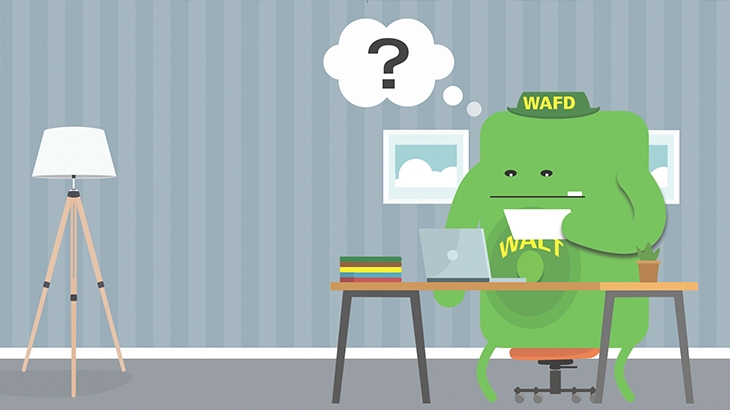CDs vs Savings Account: Pros and Cons of Each
You're probably familiar with savings accounts—after all, the only difference between a checking and a savings is that you usually don't get a debit card when you open a savings account. A certificate of deposit (CD) is intended for you to set aside your cash for a rainy day, just like a savings account, but with a few more rules.

Safety and Security for CDs and Savings Accounts
Are CDs safer than savings accounts?
Banks offer both CDs and savings accounts, and because of this, one is not any safer than the other. Always compare accounts to choose what's best for you!
What are the risks of using a CD over a savings account?
The main risk is that you might need the money you deposit into a CD. In a savings account, you can deposit and withdrawal whenever you might need it, but with a CD the money has to stay put until it matures or reaches the end of the term you chose when you opened it (anywhere from a few months to five years is typical). You can still take it out if you really need it, but beware there are penalties you'll have to pay if you do. This might be 30 days of interest or a larger fee and could end up reducing the original amount you deposited. Make sure to check what the penalty would be before you open the CD as these fees vary by financial institution.
If you have questions, WaFd Bank is here to help!
Interest Rates: CDs vs Savings Accounts
When you open a CD, you agree to keep the entire balance locked away for the term you select. Because of that, your money earns a higher interest rate. When you deposit money into your checking, savings, and other accounts, the bank uses that money to make loans, and can depend on the money that's put away in a CD to make those loans which also factors into the higher interest rates a CD gives. Since savings accounts are intended for you to save but it's still freely available for withdrawal, a small interest rate is offered as an incentive to keep it there.
Average Interest Rates for High Yield Savings Accounts
Currently, high yield savings accounts hover somewhere around 1.00%-4.50% depending on which financial institution you open your accounts with. Double check the requirements for any interest rate advertised, as there may be balance requirements or other restrictions to qualify. Often, any advertisements you see will show the highest interest rate available (for example, up to 4.50%) but the balance required can be hundreds of thousands of dollars before you're eligible for that high rate.
Current CD Interest Rates
Similar to high yield savings accounts, current CD interest rates are generally between 0.05% and 5.00%, again depending on the financial institution. CDs are a bit more complicated, as the rate you get really depends on the term you choose which can range from a few months up to 60 months (5 years). Remember that once you open a CD, you'll have to pay a penalty to access your funds before the term is up, so make sure you have a separate emergency fund in place.
Let WaFd Bank do the math for you! Check out our CD calculator to find out how much more you can save with a CD over a savings account.
High Yield Savings Accounts vs CD Accounts—What is a high yield savings account and how is it different from a CD account?
Because your cash is tied up with a CD (at account opening you agree to leave all of it there for the term you choose) they earn a higher interest rate than savings accounts do, even over high yield savings accounts in many cases. With all savings accounts, you have the ability to deposit more money over time, which you usually don't get with a CD. Sometimes, you can make one or two deposits to your CD, sometimes known as a "bump", but generally once you open a CD you can't make a withdrawal without paying a penalty, which is different at every bank.
The other main difference is that the interest rate can go up or down with all regular accounts, and your interest rate is locked for the term you choose when you open your CD and cannot change. When your CD matures, if you don't tell your bank what you want done with your money it will roll over into another CD with the same term at the current interest rate offered at that time in most cases.
Benefits of a High Yield Savings Account vs a CD
The main benefit is that you have free access to your money while enjoying a great rate compared to a traditional savings account. You have the flexibility to make withdrawals if you need to or add money to the account to save and earn even more.
Downside of a High Yield Savings Account Over a CD
Because you can withdrawal and deposit money, the interest rate is lower than you would get with a CD. Both savings of all kinds and CDs are safe ways to save, but rates can change quickly and you could find yourself earning much less than you did even a month earlier.
Making the Right Savings Choice for You—Key Factors for Choosing a CD Account over a Savings Account
The most important difference is accessibility. Emergencies never wait for a convenient time to crop up, so it's a good idea to have a separate emergency fund if you go with a CD since you won't have access to that money without paying a penalty fee. If you already have a separate savings account for specific future goals, like a car or a house, a CD can be the best option to help your money grow faster. Remember you can choose both! Keep what you think you might need in a savings account and deposit the rest in a CD.
WaFd Bank can do the math for you—use our CD calculator to compare accounts and see how much interest your money can earn.
WaFd Bank is Here to Help
Interested in opening a CD or have a few questions? We're available 24/7 over the phone at 800-324-9375, or visit us in person at your local branch. You can also check out our CD rates and open an account online anytime!
Did you find this article helpful? Share it!


